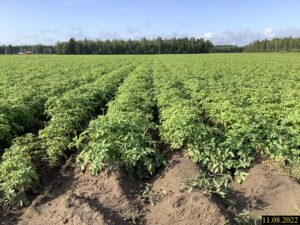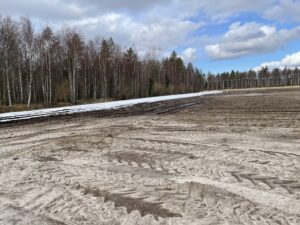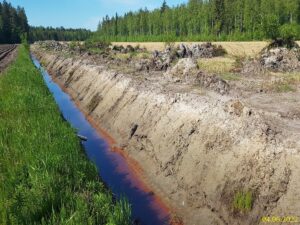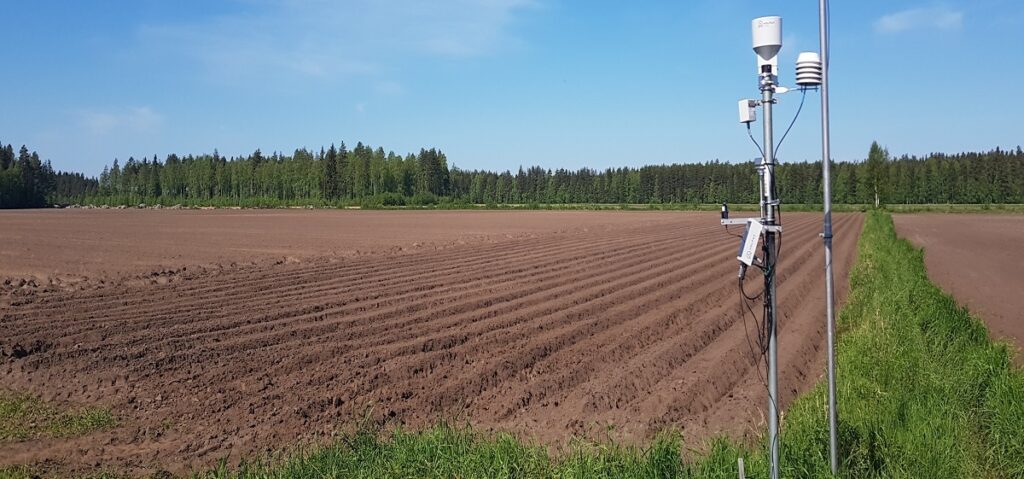
Finland I – Municipality of Tyrnävä
About
The case study site in the Municipality of Tyrnävä is a potato farming field of about 7 ha, in boreal climate. The region is covered with snow from late October to April. The cropping season is from late May to early September. During the summer season the daytime light last for nearly 24 hours. The case study field is divided into two parts with subsurface drainage. In the WATERGRI project, extensive amount of soil moisture and hydrometeorological in-situ data collection is carried out using IoT-based sensor network, automatic field weather station. Additionally, remote sensing-based data collection for vegetation and soil is also carried out. The data will be useful to develop computational models for the case study site to evaluate the necessity for irrigation and its consequences on water quality.
Tested Solution
At the Municipality of Tyrnava we are testing following solutions:
- Integrated physically-based terrestrial system models
- Remote sensing pipeline
- Irrigation management and agrometeorological monitoring solutions
Partner involved in solutions testing is University of OULU.
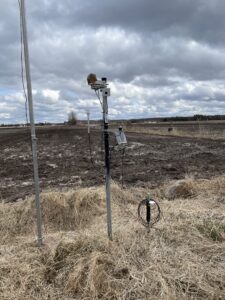
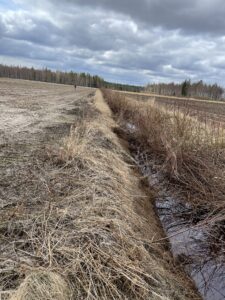
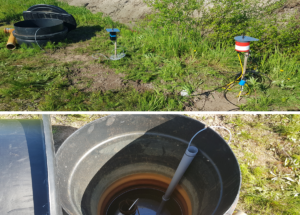
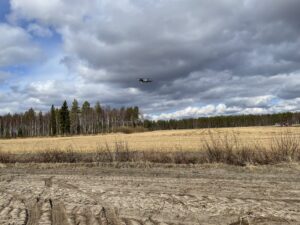
Solution Test Progress
Integrated physically-based terrestrial system model
Field scale fully-integrated surface and subsurface hydrological computational model was successfully developed. Scenario-based analysis of model was carried out to evaluate irrigation alternatives to mitigate summer drought situations and effectiveness of controlled drainage approach.
Remote sensing pipeline
Different remotely sensed datasets related to soil and vegetation were collected, analyzed, and delivered through a documentation to discuss their potential use to support irrigation.
Irrigation management and agrometeorological monitoring solutions
Data collection using advanced ICT solutions through field based automatic weather station, IoT based sensors, and other weather data for crop season 2021 was carried out. Preliminary dataset were provided to the partner that provide solution. Moreover, data analysis and simplified conceptual computational model was developed based on collected extensive data. Preliminary results were delivered to discuss smart irrigation and drainage control framework to mitigate summer drought in the Nordic agriculture. Similar data as well as new measuring sensors were installed to collect data for crop season 2022. Further analysis and documentation is ongoing.
Bio-based nutrient-collecting membranes
Water samples can be provided to the partner that provide solution to evaluate the effectiveness of the solution to reduce loading to surface water from agriculture.
Publications
- Ghag K., Ahrari, A., Mustafa S., Panchanathan A., Liedes T., Klöve B., and Torabi Haghighi A. Integrated irrigation and drainage approach to overcome summer droughts in Nordic conditions. 2022. EGU General Assembly, Vienna, Austria. Conference Publication
- Mustafa, Syed Md Touhidul, Kedar Ghag, Anandharuban Panchanathan, Bishal Dahal, Amirhossein Ahrari, Toni Liedes, Hannu Marttila et al. 2022. Smart drainage management to limit summer drought damage in Nordic agriculture under the circular economy concept. Hydrological Processes. Article in Journal

First field visit to the case study site. Discussion with the farmers about WATERAGRI solutions to be implemented at the case study field.

Installations of IoT-based sensors in the case study field during onset of cropping season 2021.

Crop monitoring during the mid-crop season and other research activities at case study site.

Collection of installed sensors in the case study field at the end of the crop season and during the onset of winter.

Installations of groundwater table monitoring pipes in the case study area before the start of the season 2022.

Installations of IoT-based sensors in the field, water level logger in the drainage ditch at case study site for cropping season 2022 and groundwater table monitoring through installed pipes in the field.

Crop and groundwater table monitoring in study field during the mid-crop season.

Groundwater table monitoring in study field at the end of the crop season.

PhD course on data analysis: Agricultural water and nutrient management: novel
approaches on water retention and nutrient recycling.
